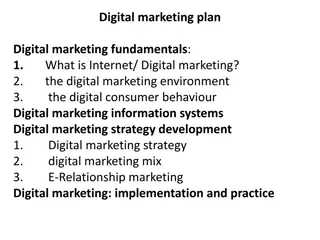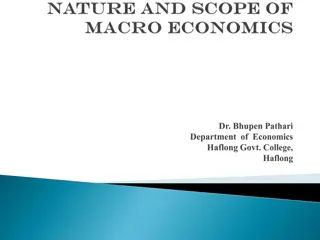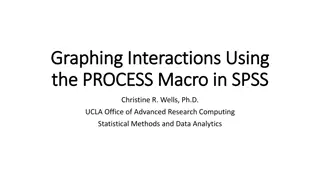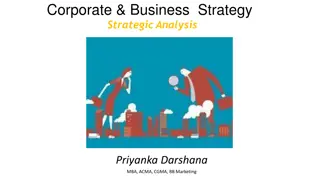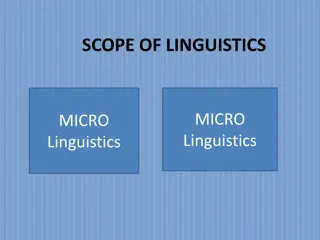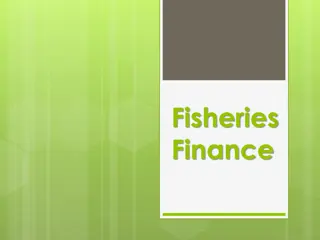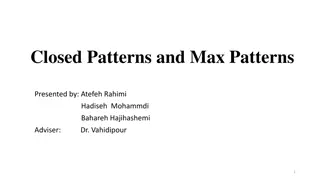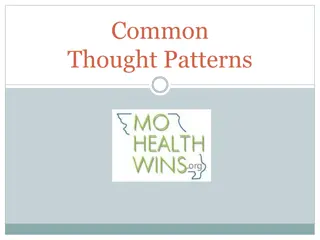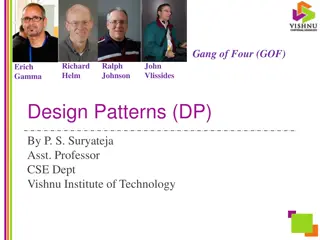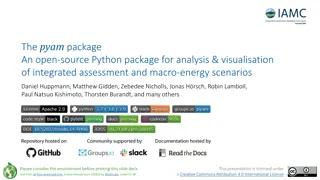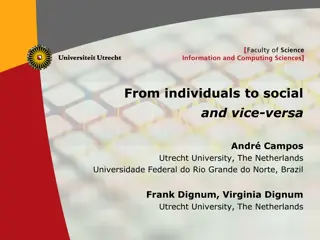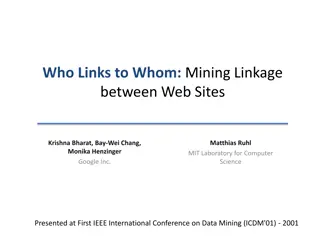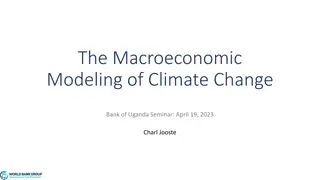Evolution of Modern State: Three Macro-Patterns Explored
The evolution of the modern state is influenced by three key macro-patterns: War and Militarism, Emergence of Capitalism, and Struggle for Citizenship. These patterns involve deep processes of change over long periods, contributing to the development of modern liberal democratic states. War and Militarism played a central role in state evolution, shaping state finances, coercive capabilities, and international competition, ultimately impacting citizenship expansion and democratic institutions.
Download Presentation

Please find below an Image/Link to download the presentation.
The content on the website is provided AS IS for your information and personal use only. It may not be sold, licensed, or shared on other websites without obtaining consent from the author.If you encounter any issues during the download, it is possible that the publisher has removed the file from their server.
You are allowed to download the files provided on this website for personal or commercial use, subject to the condition that they are used lawfully. All files are the property of their respective owners.
The content on the website is provided AS IS for your information and personal use only. It may not be sold, licensed, or shared on other websites without obtaining consent from the author.
E N D
Presentation Transcript
The Three Macro-patterns involved in the Evolution of Modern State Although many factors and processes are involved in the process of this evolution there are three important macro-patterns : War and Militarism, The emergence of capitalism, and The struggle for citizenship These macro-patterns all involve deeply structured processes of change taking place over long periods. So they cannot be merged into a single historical narrative, because they all developed according to different historical time scales. The intersection of all of this helped generate the rise of the modern liberal democratic state.
War and Militarism The ability of states to secure and strengthen their power bases and, thereby, to organize their affairs, internally and externally is at the heart of the processes in the evolution of the modern state. It was the capacity of states to organize the means of coercion (armies, navies and other forms of military might) and to deploy them when necessary. An analysis of state finances over several centuries would show that functions of the state have been overwhelmingly military and overwhelmingly geopolitical rather than economic and domestic. But in the seventeenth and eighteenth centuries the state s real finances grew rapidly, largely in response to the escalating costs of the means of coercive power - the costs of growing, professional, standing armies and navies. Expenditures on non-military civil functions remained relatively minor.
War and Militarism (Contd.) State finances were dominated by foreign wars. As warfare changed and was marked by the engagement of more professional and permanent forces, so the state grew both in overall size and in terms of its size in relation to civil society . This indicates that the development and maintenance of a coercive capability were central to the development of the state: if states wished to survive they had to fund this capability and ensure its effectiveness-state makers were locked into an open-ended and ruthless competition-Britain, France and Spain were the survivors. The competition among states was driven not just by the ambitions of rulers and internal or domestic considerations, but also by the very structure of the international system: individual states, pursuing their own security, had to be prepared for war, a process which itself generated insecurity in other states thus resulting in an arms-race and in turn making all states less secure. This vicious circle of mutual insecurity can be referred to as the security dilemma of the state.
War and Militarism (Contd.) The more costly and demanding war became , the more rulers had to bargain with and win the support of their subjects. The increase in such demands increased the dependence of rulers on cooperative forms of social relations (Giddens, 1985). Thus the expansion of citizenship was undoubtedly bound up with the military and administrative requirements of the modern state and the politicization of social relations and day-to-day activities which followed in its wake. The institutions of representative democracy received an impetus from the conditions of mass mobilization and the political demands created by the modern state.
War and Militarism (Contd.) It is important to add that nationalism was a critical force in the development of the democratic nation- state. Nationalism has been closely linked to the administrative unification of the state and the conditions involved in the creation of nationalism were also often the conditions which generated the modern state. The process by which national identities were formed was often the result of both a struggle for membership in the new political communities, and a struggle by elites and governments to create a new identity to legitimize the actions of the state.
War and Militarism (Contd.) But even where the establishment of a national identity was an explicit political project pursued by elites, it was rarely ever their complete invention. A.D.Smith rejects the view that such elites invented nations where none existed . Accordingly, many nations were built up on the basis of pre- modern ethnic cores whose myths and memories, values and symbols shaped the cultures and boundaries of the nation that modern elites managed to forge. The historical conditions surrounding the rise of national democracies have been complex and varied. If war gave democracy an impetus within particular nation-states, the rights and principles of democracy were often explicitly denied to those who were conquered, colonized and exploited by powerful nation-states.
State and Capitalism Development of the modern economic system and its effect upon state organizations and representative institutions: 13thand 14thcenturies onwards the growth of interconnections between states and societies-that is, of globalization- became progressively shaped by the expansion of Europe. Key features of the modern states system- the centralization of political power, the expansion of administrative rule, the legitimation of power through claims to representation, the emergence of professional standing armies- which existed in Europe in embryo in the sixteenth century were to become prevalent features of the entire global system.
Early Leaders in Exploration The Spanish and Portuguese were the early leaders. Their position was eroded in the seventeenth century by the Dutch and then by the British and French. British and French influence was very predominant in the eighteenth century, although it was British which was quite dominant in the nineteenth. British naval and military power conjoined with the centrality of London in terms of world trade and finance.
Impact of the Expansion of Europe on Organizations Such expansion across the globe enhanced the demand for organizations that would be capable of operating on such a scale. All the basic types of organization of modern society- the modern state, modern corporate enterprise, modern science- were shaped by it and benefited greatly from it. European expansion became a major source of development of state activity and efficiency- executive powers and state bureaucracies were better resourced and this enhanced their autonomy in the face of local assemblies and parliaments.
Capitalism and Fundamental Change in World Order It made possible genuinely global interconnections among states and societies; it penetrated the distant corners of the world and brought far-reaching changes to the dynamics and nature of political rule. The development of the world capitalist economy initially took the form of the expansion of market relations, driven by a growing need for specific metals to lubricate economic transactions, and for raw materials and other factors of production. Capitalism stimulated this drive and was stimulated by it. It is useful to make a distinction between the expansion of capitalist market relations based on the desire to buy, sell and accumulate mobile resources or capital, and the formation of industrial capitalism involving highly distinctive class relations-based on those who own and control the means of production and those who have only their labouring capacity to sell.
The Development of Capitalism and Changes in European Agriculture The development of capitalism itself can be partly explained as the result of changes in European agriculture which stemmed from the twelfth century: changes resulting in part from the drainage and utilization of wet soils, which increased agricultural yields and created a sustainable surplus for trade in the long term. Linked to this was the establishment of long-distance trade routes in which the northern shores of the Mediterranean were initially prominent- economic networks created north-south corridors across the European land mass. It was a combination of agricultural and navigational opportunities which helped stimulate the European economic dynamic, as well as the continuous competition for resources, territory and trade. Accordingly, the objectives of war gradually became economic objectives: military endeavour and conquest became connected to the pursuit of economic advantage.
Capitalism and Changes in State-Civil Society Relations The state slowly became more embroiled with the interests of civil society in part for its own sake . There was an effective alliance between the interests of powerful political and economic groupings during the formative phase of the modern state but, not without conflicts. The new capitalist classes sought to struggle not only against the remnants of feudal privilege, but also to ensure the progressive separation of the economy from the state so that the economy was free fro any risk of arbitrary political interference. The emerging economic classes often became the reforming classes of the eighteenth and nineteenth centuries, seeking to conjoin the struggle for an independent economic sphere with the struggle for representative government.
Capitalism and the Pursuit of Civil and Political Rights The chief connecting mechanism was the attempt to establish civil and political rights. The issue in the establishment of these rights was the attempt to uphold freedom of choice in areas as diverse as personal, family, business and political affairs. The pursuit of civil and political rights over time reconstituted the nature of both the state and the economy- driving the former towards a liberal democratic polity and the latter towards the capitalist market system. But the meaning of membership in the modern state, that is, of citizenship, remained contested- by political rulers, anxious to preserve their traditional privileges, by powerful social groups and classes, hoping to inscribe their interests into the polity, and by many of those who remained excluded from political participation until well into the twentieth century: the working classes, women and many minority groups.


